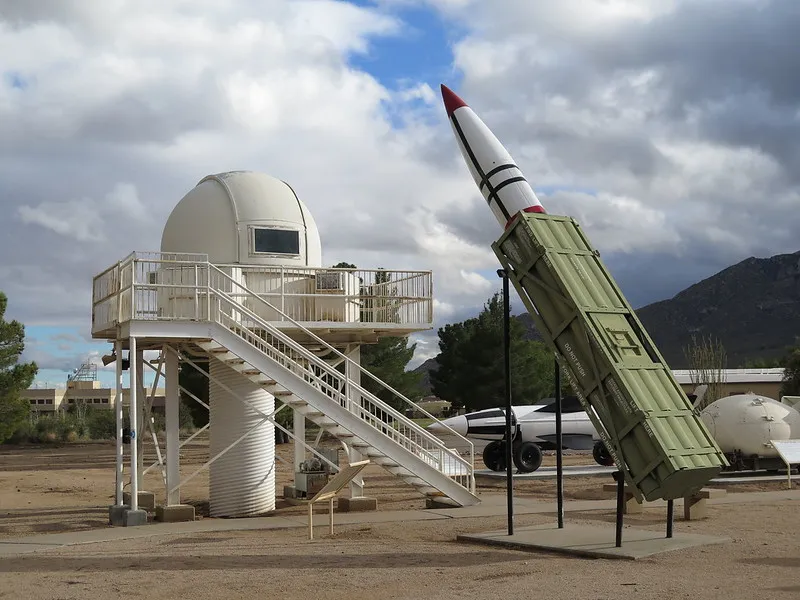The NATO Parliamentary Assembly concluded a three-day session yesterday with a declaration ratifying the drive of NATO Secretary General Jens Stoltenberg for a nuclear showdown with Russia. Aside from the call for NATO members “to clearly affirm that their strategic goal is Ukraine’s victory” and the urgent calls for more and more weapons, sooner and sooner, the central point was for the members to lift restrictions on use of weaponry so that they can be used to hit deeper inside Russia.
There’s a silly and dangerous game afoot, as in the real world, the West can’t mobilize to produce the weaponry needed on the ground and Ukraine doesn’t have the manpower left to man such weapons were they available. The game now is drones, long-range missiles and nuclear-capable F-16s, as part of a ‘nuclear chicken’ game.
Today, Russian President Vladimir Putin responded, making clear that he doesn’t suffer fools lightly. First, he recalled a time when he worked with Stoltenberg and “he did not suffer from any dementia. If he talks about the possibility of launching strikes on Russian territory with high-precision long-range weapons,” only a fool would not know that “space-based intelligence tools” and “highly qualified specialists” involved in the development of such systems are carrying out such attacks. “But this task is being prepared not by Ukrainian servicemen, but by representatives of NATO countries. So, these representatives of NATO countries, especially in Europe… should be aware of what they are playing with.” Putin thinks he’s fighting NATO. How likely is it that clever geopolitical will entrap him in the ‘game’ of nuclear confrontations and bluffs?
The mobilization initiated three days before by the founder and head of the Schiller Institute, Helga Zepp-LaRouche—when reports of the attempted blinding of Russian early-warning radar systems came out—has sounded an alarm and is gaining gained traction. As she explained yesterday on the Loveworld News 24 satellite television broadcast out of South Africa: “So, what we did, with the Schiller Institute, we immediately said, let’s verify this, because this is of such an incredibly important nature, we have to have military experts. We interviewed about 7, 8 military experts, among them, the top, top experts, for the West, such as Ted Postol, who is probably the expert in the field of nuclear technology and rockets, and several others from France, from Germany, and they all confirmed, this is an extremely dangerous step forward toward World War III. And we put out this release to warn the world that it is the case.”
Germany and Italy gave Stoltenberg a quick, ‘No way.’ Hungary’s Foreign Minister warned of the craziness being promoted as leading toward unspeakable tragedy. Country after country is horrified as the U.S.’s client state, Israel, kills Palestinians with a reckless disregard for human life. Germany also announced that they would arrest Netanyahu, if the ICC warrant is approved. The U.S. neighbor to the north, Canada, called for an immediate end to Israel’s assault. Not even a mention of hostage release—just the immediate necessity to stop the horror once and for all. The U.S. neighbor to the south, Mexico, announced their application to join South Africa’s legal case at the International Court of Justice, charging Israel with genocide. Today Spain, Norway and Ireland officially recognized Palestine today. Slovenia planned to join the Spanish initiative but announced their plan to recognize Palestine in a few days.
And two of the world’s largest countries, Brazil and China, both founding members of the BRICS, have offered a pathway out of nuclear hell, calling upon other nations to endorse their 6-point peace program to dry out the Russia-Ukraine hostilities. The proposal was issued following “in-depth” discussions between Wang Yi, China’s Foreign Minister, and Celso Amorim, Chief Advisor to the President of Brazil, in Beijing on May 23, under the title “Common Understandings Between China and Brazil on Political Settlement of the Ukraine Crisis.”
The final of the six points may surprise some: “Dividing the world into isolated political or economic groups should be opposed. The two sides call for efforts to enhance international cooperation on energy, currency, finance, trade, food security and the security of critical infrastructure, including oil and gas pipelines, undersea optical cables, electricity and energy facilities, and fiber-optic networks, so as to protect the stability of global industrial and supply chains.”
Such an initiative, added to the well-developed LaRouche Oasis Plan, represents the pathway of a solid and grounded optimism, a pathway out of the hell of thermonuclear confrontation. Rather than think the unthinkable, it is time to think—and do—what is thinkable.







